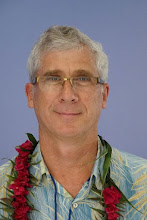On Thanksgiving Day, I presided over a wedding ceremony. After the service, someone asked me about the Celtic Church. This question is not unusual, and is one I am ready for, as I have heard it so often. They wanted to know where in Ireland it was from, and who founded it. I've learned to pause, and reply with a striaght face that the church was founded by "Red Auerbach and Larry Bird"! After the laughter, I then provide a short summary, and some of the fragments are what follows.
First, one has to dispel the notion of a Celtic homogenity. The Celtic (or Insular) Church existed for a period of 500 years in many places which were hundreds of miles apart. Naturally, distinct feaures arose in each country due to the different cultural and historical stressors. In addition, most people wrongly assume that "Celtic" refers to Ireland, and Ireland alone. Yes, the majority of Celtic saints we may speak of, were from Ireland, but there are many others from different Celtic lands. One gets a different gist when one considers the Celtic holy sites of Iona (Scotland) and Lindisfarne (England). The Celtic world was in many different places. The "official" Celtic world consisted of six areas. These were Ireland (Eire), Scotland (Alba), Wales (Cymru), Cornwall (Kernow), The Isle of Man (Manx), and Brittany (Breizh). And each of these has different themes in the area of Celtic Spirituality. This will a topic of a future article. It would also be incorrect to assume that the Celtic influence stopped at those borders. Far from it, as Celtic influences were felt far into Europe, including Italy and also Spain. There were pockets of Celtic culture all over what we now call Europe. No doubt, much of this goes back to that Celtic sense of wanderlust! I can proudly say that I have been to all of these regions save The Isle of Man.
That being so, what does it mean to be Celtic? Carl McColman, whose blog is posted on the front page, writes about this question in his excellent and entertaining book The Complete Idiot's Guide to Celtic Wisdom (2003). There McColman notes the common threads in the different Celtic traditions, and finds five. "Celticity" means having a unique language. Second, each of these places has a different groups of myths and legends. Third, the land (fourth) people on that land are important. And fifth, having a distinctive "culture" which includes music, art, and literature.
Of the six "nations" listed above, I feel I know the Scottish brand of Celticity best, having had the chance the live there for five years, while I attended University at St. Andrews, and Edinburgh. Scotland is a wonderful place to live, and the Scottish are a warm, and friendly people. McColman's discussion above is helpful, and I want to focus on one point he makes in particular: the connection to land as part of the Celtic experience.
I have often thought about this, me being from the USA, and used to flying around in jets, or driving in a car all day long, on highways lined with Burger King's and Jack in the Box's feeding stations. The Scottish experience is something different. Yes, they too have their Wimpy Burgers, but to appreicate Scotland, to know Scotland, one has to place oneself in it's vast empty places which are everywhere. Whenever I travelled to the Highlands of Scotland, or even some of the islands, such Jura and Islay, I was often taken back by the incredible sense of openness, of space, of connection to the land one feels. One day I drove with a friend for hours and saw thousands of sheep, and not one person!
On another occassion at St. Andrews, I remember a group of guys who went hill walking one afternoon. (A hobby I had never heard of before). The fog became so bad that they spent the night in a sheep's bothie or shelter, and returned the next day. And over time, I came to see this was something that happened often, to lots of hikers. I had a similar kinds of experiences since I moved to Hawaii in 2000. And then too, I felt an immediate connection to the land, which the Hawaiians call "ina", as if I belonged, and as if I was "home" even thought I had never been there before. This is a beautiful feeling and experience.
For me, and perhaps for you how are also on the Celtic path, we need to recall that reverence for Nature is a central feature in our cultural tradition. As I know this, I intentionally make time each day, to get out of doors, to enjoy the land, sea, and sky. And each day when I do, I feel spiritually refreshed and renewed. Yes, part of being a Celtic monk includes studying the tradition, learning the history, reading books, listening to Celtic music, and keeping one's brain in gear. But the Celtic way, is not all brain centered. Celtic spirituality includes all of the senses of the body as well. So do yourself a favor, take time, to be quiet, to stop and smell the roses, and to get to know your environmental surroundings.
Wednesday, December 9, 2009
Subscribe to:
Post Comments (Atom)



No comments:
Post a Comment